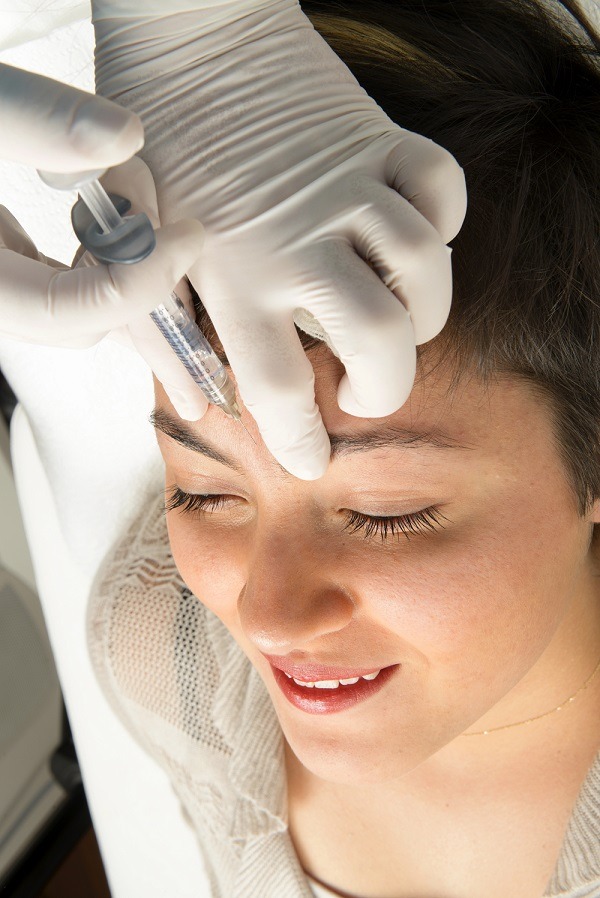- Home
- Blog
- Cosmetic Injections
- Can Botox make you happier?
Can Botox make you happier?
 Well, Botox might very well do that. There is a great deal of evidence that demonstrates that injections of botulinum toxin neuromodulators (Botox, Dysport, Xeomin) can modify the visible manifestations of emotions and potentially improve emotional states that culminate in greater happiness.
Well, Botox might very well do that. There is a great deal of evidence that demonstrates that injections of botulinum toxin neuromodulators (Botox, Dysport, Xeomin) can modify the visible manifestations of emotions and potentially improve emotional states that culminate in greater happiness.
If your normal everyday expression is one with a big frown and indented creases on your brow, everyone might think you are angry or upset. If your forehead is always furrowed, you may appear to others as constantly worried, bothered, or lost in deep thought. In both instances, people in your social environment might leave you alone or worse, avoid you. However, if these expressions can be modified, dampened down, or possibly eliminated, you likely will be viewed in a much more positive fashion. Friends and colleagues will treat you differently, making you feel better and happier, and inspiring more positive emotions in people around you.
The facial feedback hypothesis states that expressive behavior can activate or regulate emotions— this idea was first mentioned by Charles Darwin in 1872. He believed that expressive behavior had a major role in the control of emotion. Neurophysiologic studies support this hypothesis as well: Facial expressions, rather than being a simple manifestation of internal emotional states, can actually create the internal and biological experience of emotions. It has become clear that the manner in which individuals manage their facial emotional expressions can color their social judgments and even affect their mental health.
Botulinum toxin as well as other cosmetic treatments for improvement of the upper face, such as the use of soft tissue augmentation, all can alter one’s appearance as well as the expressions of anger and sadness. Laser resurfacing and other energy based interventions can bring about similar results, and it would appear that these procedures can increase the experience of positive emotions. Unhappy life events will still be felt, but with the cosmetic treatments available to us today, they don’t have to be reinforced by equally negative facial expressions.
One’s appearance affects everyone in their social environment. Habitually positive facial expressions can lead to better life outcomes decades in the future, and those who do not have an innate tendency to smile and look agreeable may achieve similar results by erasing a lifelong frown or grimace. As is well known, “smile and the world smiles with you, cry and you cry alone.”
Frowns or a furrowed brow are not present in children and young adults, but gradually become evident and eventually permanent with aging. This is caused by the intermittent contraction of the muscles of facial expression, which cause frowning and lined brows. As a result of these movements over years and decades, these lines and furrows become more noticeable, semi-permanent and then irreversible. If the strength and contractility of these muscles can be diminished or inhibited, then the appearance of negative emotions or frowns and furrows will not only be diminished, but their progression to deeper, fixed, and less reversible changes can be totally prevented with treatments over time. The use of neuromodulators is very helpful to diminish the immediate appearance of being angry or worried, but even more importantly, its prophylactic affects are to prevent the eventual appearance of deep lines and negative facial expression.
More recent research suggests that it is even possible to treat depression by altering the facial muscles with injection of neuromodulators. Indeed, studies of patients with major depression who had injections of Botox into the forehead found that more than half of these subjects showed relief from depression compared to only 15% who received a saline placebo. This and other studies suggest a circuit between the brain and the muscles of facial expression. It is fascinating to think that botulinum toxins may well be a useful anti-depressant, and might actually prevent depression in the future!
Botox was first approved over 25 years ago to treat strabismus and blepharospasm. It has now become a household word and is often used generically for the several brands of botulinum toxin available. Over the past 25 years it has been shown to be extremely helpful for numerous medical conditions, including excessive sweating, cervical dystonia, chronic migraine, overactive bladders, and many other conditions. In addition to having all these diverse medical conditions, injection of extremely small amounts into the muscles or facial expression may alter how you look, how you feel, and how everyone in your social orbit views you, and indeed make you happier!
If you live in the Boston area and are considering a Botox treatment, our team of medical professionals can help you look your best. Request a consultation online or contact us at (617) 731-1600 to schedule your appointment.
Related posts:




Leave a Reply